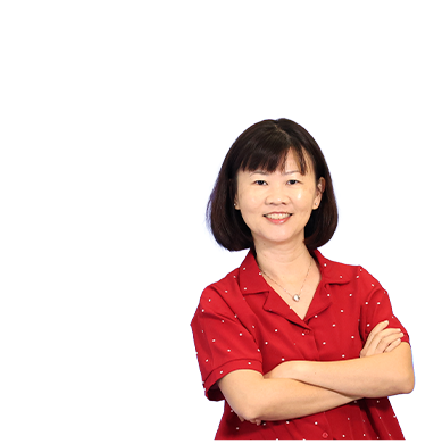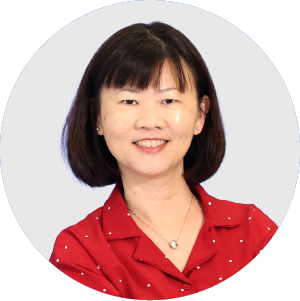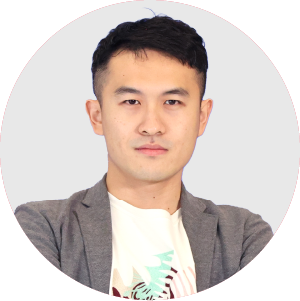我是跨国华人
我在欧洲遇到的差别待遇
如何面对“华人”歧视和标签

黄佳俊Wong Kah Chun
青年指挥家

陈素君《联合早报》副刊编辑
陈宇昕《联合早报》副刊记者


陈素君《联合早报》副刊编辑

陈宇昕《联合早报》副刊记者
中
EN
Some discussions can go on forever.
Some stories cannot be told enough.
Welcome to Zaobao podcast Same Same But Different. I'm Yu Xin.
I'm Sor Koon.Same Same But Different is presented by the Singapore Chinese Cultural Centre. Let’s learn about the culture and stories of Chinese Singaporeans together.
In the podcast, we chat with Chinese Singaporeans from different backgrounds about how they view their Chinese identity.
You have just heard Tanya Chua’s song ‘Where I Belong', released in 2001. It is the Chinese version of the 2001 National Day song. Sor Koon, do you have a Chinese song that makes you feel most at home?
First of all, I must say that I have never been away from home for more than two weeks. When I travel, I will be back in Singapore within two weeks. However, I imagine that if I work abroad, Kit Chan’s 'Home' should be the song that would best bring out the emotion of homesickness. Its lyrics strike a chord with me.
Sor Koon, you have never left Singapore for a long period. I am different, because I am a Malaysian working in Singapore. Due to the pandemic, I was unable to go home for two years. Sometimes I would listen to Malaysian songs, for example, A-Niu’s 'Mamak Stall', which gives me a strong feeling of nostalgia. I believe that Singaporeans who have lived overseas for a long time may have strong sentiments about Singapore music or food. We are going to introduce our guest today. He is an expert in music. Let’s hear his stories.
Hi everyone, today we welcome Singaporean music conductor Wong Kah Chun to our show. He is currently the chief conductor of the Nuremberg Symphony Orchestra in Germany and will be the chief conductor of the Japan Philharmonic Orchestra next year. He is also the winner of the 5th Mahler Conducting Competition in 2016. This is a very important competition in the symphony world, and he was only 29 years old when he won it. He is not just the first Singaporean to win it but was also the first Asian to win this prestigious competition. He went on to become an international sensation, and we have been seeing him in media reports over the years. We are very happy for him. Today we finally have the opportunity to invite him to our podcast and chat with him. We get to listen about how he feels about being a Chinese, an Asian or a Singaporean on the international stage, be it in Europe, America or Japan, where he currently lives.
Let us welcome the young and talented conductor Kah Chun.
Chinese Singapore abroad
Hello everyone.
Kah Chun, how often do you return to Singapore?
After leaving in September 2020, I did not come back until March this year, so it was a year and a half. It is the second time that I have returned to Singapore this year. Everytime, I will stay for about a week or so.
I read in a report that Kah Chun once stayed no more than 22 days in Singapore over 7 years.
After graduating from university, I have been travelling and studying abroad. I could be in Europe, Japan, Mainland China, Taiwan or in transit, and may stopover in Singapore for one to two days.
Very often, you only return to Singapore for performances, right?
When I return to Singapore, I spend most of my time with a good friend in the void deck of Kebun Bahru in Ang Mo Kio, where we use music to interact with children at a childcare centre.
Kah Chun, you have been working overseas for a long time. Are you influenced by the local culture there? For example, have you picked up any local habits during your long stay in Germany and Japan?
I embrace a learner’s attitude when I am abroad. In different countries, I would actively learn as much as I can about the local cultures.
Do you learn their languages?
I feel that it is necessary to have a basic understanding of the language. When I am conducting national or local orchestras in different countries and cities, I will prepare to speak the local language and try to use the local language during rehearsals. It shows my utmost respect for the orchestra. I am also learning about the different local characteristics. I have stayed and studied in Germany for a few years. I also spent a few years in Japan. In these two places, I can at least use the language to bargain at the markets. I can still do it.
Does learning the local language make it easier to develop a deeper understanding of the place and their local culture?
Of course. Language is a very important connection with the local culture. Understanding the language helps me to understand the attitudes and values of people there. For example, the German language system is very clear. First, German is different from English where there could be many different pronunciations. In German, A is pronounced as “ah”, O is pronounced as “oh”. The expression is very straightforward. It reflects the qualities that the country values: straightforwardness, not beating around the bush, logical thinking.
Yu Xin is a Malaysian. You have been working and studying in Singapore for about 15 years and probably have similar experiences as Kah Chun. Any thoughts?
My experience is definitely not comparable to Kah Chun because I am from Johor Bahru, which is very near to Singapore. I generally stay in Singapore on weekdays and Johor Bahru during weekends. I constantly commute across the border. During Covid, there was no way for me to return to Malaysia and had to stay in Singapore for a long time. It was the same for many of my friends around me. In the last 2 years, they got used to living in Singapore. They went home less often after the border reopened. There is another important point that I wish to highlight. When you have shared weal and woe, you get emotionally attached to the place. Hence, I feel that the two years of isolation is a very important period for many foreigners or new immigrants in Singapore.
I feel the same way about what Yu Xin has said. I have spent a lot of time in Japan in the last 2 years, and the support I received from Japan has been tremendous. There were many concerts there where they were unable to hire foreign conductors because of the strict border restrictions. By staying in Japan, I had many unique work opportunities. Therefore, I feel grateful towards Japan.
Last year, I was in Tokyo for a work assignment. Kah Chun contacted me but we were unable to find a time to meet.
Yeah, it was around this time in July or August.
You have stayed in Europe and Japan for a long time. When you were in these places, was being Chinese something that stood out? Do people have expectations of you as a Chinese person? Or do you feel that you have to behave in a certain manner because you are a Chinese Singaporean?
In the beginning, I did not think much about it. In Singapore, we are used to having friends of different races. We went to school together and ate together. My professors and I communicate in English.
Do you resist your identity as an Asian?
Of course not. In terms of habits, I prefer to have aspects of Asian culture.
Is there any advantage being a Chinese Singaporean?
Kah Chun, we also know that identity issues are constantly being discussed in Europe and the United States. You may face discrimination or be given preferential treatment at the workplace because of your identity. As an Asian conductor, do you have an advantage over others in the traditional music scene in Europe and America? Or do you face discrimination?
As Asians, we are not performing our traditional pieces. For example, if I am Russian and I play Tchaikovsky’s pieces, the audience and orchestra might place certain expectations on me.
Very often, audiences will consider my identity. They will wonder if he can do it, if he’s too young and notice that he’s not Italian. I am not saying that everyone is like this, but it has been an obstacle from the start. The pandemic led to more complications.
I recall my time in Nuremberg, Toulouse and many different cities. Before the pandemic, I especially liked these cities. I have my favourite bakeries and restaurants there. During the pandemic in September 2020 and January 2021, I returned to these cities. Walking on the streets, people shouted at me: “You Asian, Chinese, virus carrier, go back to your country!” I heard them in different cities. In Nuremberg, there is a bakery that I love to visit. We are on good terms. Whenever I perform at Nuremberg, I will visit them every Saturday morning, to buy a dozen loaves of bread. I am their regular customer.
After the outbreak, at the end of 2020, I visited that bakery again. Suddenly, they no longer seem to recognise me. They conducted their business in a discriminatory and rude manner. As an Asian, it was already complicated. During the pandemic, it became even more complicated and troublesome. In the last few years, these are the negative experiences that I had to bear while working and performing overseas.
Will you refuse to go to these places after the bad experiences?
Of course I will think twice about going there. This is racial discrimination. It is not necessary to treat others this way. However, this is not my country nor my community. What can I do? What I could do was a huge concert in Nuremberg on August 6. There were 75,000 live audiences, and it was also broadcasted live on TV and radio. It may have reached a few million people. In this concert, I invited five soloists from the Singapore Chinese Orchestra to perform with the Nuremberg Symphony Orchestra. I feel that I have to be the bridge and bring the best of Singapore’s traditions and culture to Germany. In August 2022, I’m glad that the audiences are respectful of other races again. If we were to organise the same concert in August 2020, the outcome would be completely different.
This is Kah Chun’s approach. Instead of pessimistically accepting foreigners’ discrimination of Chinese, he used music to build a bridge for communication so that we can resolve the disagreements.
Yes. I think this is the power of music and art. It is immeasurable. In any society, we can express people’s ideas through art. It’s not a transaction where I pay on one hand and receive the goods on the other. It does not work that way. Art plays a very significant role in a society, which cannot be measured in dollars and cents.
How should we define Chinese Singaporean?
Kah Chun, do you continue to retain some of the so-called Chinese customs and traditions when you are abroad? Especially since you are often unable to return to Singapore during Chinese New Year and festivals.
Since we were young, my family has not practised any special Chinese customs where we have to do certain things or eat a specific food during Chinese New Year. We are not particular. Thus when I went abroad, I would try to understand the culture of others. For instance, when I was studying at the university, many of my friends were from northern China. They would make and eat dumplings during Chinese New Year. It became what my family and I would do in Japan. We would also make our own dumplings during Chinese New Year. Although this is not a tradition of Chinese Singaporeans or southern China, it became a tradition of my family.If we are talking about etiquettes such as respecting the elderly, I’m not sure if it is a Chinese or Asian tradition, or something that young people have to follow, regardless of where they are from. Well, when it comes to using chopsticks, I regard it as something that is very important. I have a child now, and teaching my child how to use chopsticks is very important to me.
Do you think it is necessary to differentiate the traits of Asians, Singaporeans or Chinese Singaporeans that you exhibit?
Tradition is all that we are thinking about. What exactly is tradition? How do we inherit and carry on the tradition? I have also been thinking about the definition of tradition? What are Chinese traditions?When we talk about Chinese, are we referring to Chinese Singaporean or Chinese in a particular region?In Singapore, Chinese Singaporeans comprise Hainanese people, Hakkas and Hokkiens. Each has its own traditions.
We are aware of the European and American narratives about China. I am referring to the origins of Covid-19 virus and the accusations against China. Asians were implicated because of their similar appearances. Under such circumstances, do you feel the need to protect yourself by highlighting your Chinese Singaporean identity?
No. I have never thought like this, and I don’t find it necessary. I am who I am. I have never thought of doing this.
Kah Chun, you have lived abroad for such a long time. When you occasionally return to Singapore to meet your friends and relatives, will you switch back to the so-called “Singapore mode”, and perhaps speak Singlish?
When I’m with my closest friends and family, we still speak some Singlish but it is rare.
What is your common language of communication? Do you speak English with your relatives and family members? Or Mandarin?
With my parents and a handful of close friends, it might be a mixture of English and Chinese. Very often, it’s Mandarin or English.
Do you code switch from proper English to a mixture of languages when you return to Singapore?
Indeed. But I don’t particularly like Singlish. Many regard it as a unique language. But I don’t say it well. Not authentic. As a result, I have rarely come into contact with Singlish in the last 10 years.
When you return to Singapore, what will give you a sense of belonging to Chinese culture? What makes you feel that “this is what Chinese Singaporean should do” or “this is what makes a Chinese Singaporean” ? After leaving Singapore for a long time, do you feel a stronger sense of belonging when you return?
As a Chinese Singaporean, it would probably mean going out for barbeque stingray or breakfast with my family during weekends. We may have kuay chap for breakfast. To me, these are things that a traditional Chinese Singaporean would do.
I’m impressed by what Kah Chun said earlier. He wanted his children to learn how to use chopsticks when they grow up. The illustration is very vivid and real. These cultural practices, especially those that are related to our eating habits, are very important rituals in our daily life.
What you have just highlighted about eating habits can also represent the cultural background of a person. For example, in European culture, when you eat, you put a big piece of napkin on your lap because we bring the food from the bowl to our mouth. Food may spill and soil our clothes.I am not sure how Chinese food culture is related to Korea or Japan. However, what I at least understand is that in our culture, we use chopsticks to bring the food closer to our mouth. How do we hold the chopsticks? How good are our chopsticks skills? It is something that we are very particular about because it represents an attitude and manners. When we eat with the elders in the family, it is also very important to show our respect to them. In multigenerational families, this is a traditional etiquette, an Asian etiquette. How do we show respect to the elderly when we eat together? For example, we let them start first. These practices are important aspects that reflect one's cultural background.
Thank you Kah Chun for coming to our show today, and for sharing your challenges as a Chinese conductor on the global stage as well as stories about your life. He has also shared his views about Chinese values and heritage, which are worth learning from.
Thank you Kah Chun.
Thank you everyone.
I am Tan Sor Koon.
I am Tan Yu Xin. Thank you for tuning in to our podcast!
Same Same But Different podcast is presented by the Singapore Chinese Cultural Centre.Producers:Bian He, Ong Wen Yi and Lee Yi QianPost-production:Hoe Jian WeiZaobao podcasts are available on zaobao.sg and major podcast players. If you like our podcasts, please share and subscribe to them.
一些话题讲不完。
一些心声听不够。
欢迎收听早报播客《三言两语》。我是宇昕。
我是素君。《三言两语》由新加坡华族文化中心呈献。与我们一同了解新加坡华人的文化和故事。
刚才你听到的是蔡健雅 2001年的歌曲《属于》。它是2001年国庆歌曲《Where I Belong》的中文版本。 素君啊,那你自己有没有一首中文歌曲是最让你有回家的感觉?
首先,我必须说,我基本上没有离家超过两个星期。就是去旅行的话,也在两个星期内就已经回到新加坡。不过,我想象,如果我是在海外的游子的话,陈洁仪的《家》应该是最能带出那种思乡的那种情绪。那歌词,我觉得它扣住了心弦的感觉。
所以,素君你没有长时间离开新加坡的经验。那像我可能就比较不一样,因为我是在新加坡工作的马来西亚人。然后,经历过疫情,两年没有办法回家。有些时候会听一些马来西亚的歌曲,像阿牛的歌《MAMAK档》,这种真的是很乡土,让我有很浓的一个乡愁的感觉。我相信,在海外长时间生活的新加坡人对音乐或者食物,可能都会有很深很深的感触。那接下来我们要介绍的这位嘉宾,他就是在音乐方面工作的一位专家,让我们来听听,他有什么样的故事要告诉我们吧。
大家好,我们今天邀请到的嘉宾是享誉国际的新加坡指挥家黄佳俊。他目前是德国纽伦堡交响乐团的首席指挥,明年也会出任日本爱乐乐团的首席指挥。他在2016年拿下第五届马勒指挥大赛的冠军,这是一个在交响乐坛非常非常重要的一项指挥大赛。然后,当年他只有29岁,他不只是第一个新加坡人得到这个殊荣,他也是第一个亚洲人成功拿下这项非常非常重要的大赛的冠军。得奖后,他就在国际上发光发热了。然后这几年,其实我们几乎在媒体上面就经常会看到他的报道。大家其实都很关心他, 知道他的成就,我觉得大家都很高兴。今天我们终于趁这个机会把他请到我们的podcast(播客)的现场,跟我们连线聊一聊天。听听他怎么感觉,他作为一个华人或者一个亚洲人,或者是一个新加坡人,在国际舞台,或者是在欧美,在日本,他生活的地方的一个特殊的感受。
欢迎这位在国际舞台上散发光芒的年轻指挥家佳俊。
旅居国外的新加坡人
大家好。
那佳俊,你通常多久回来新加坡一次?
我从2020年的9月离开之后,我就一直到今年的3月才回来,所以那个也有一年半,所以今年是我第二次回来新加坡,每次待就是待大概一个多星期这样。
我在一个报道上看到说,佳俊曾经有一度就是,7年在新加坡的日子加起来不超过22天。
大学毕业之后,天天其实基本上都是在国外奔跑学习,所以很多时候就是说可能(在)欧洲、日本、中国大陆、台湾啊,或者在不同的地方transit(过境),可能在新加坡 stop over(停留) 一两天。
很多时候回来新加坡都只是演出工作,对不对?
回来新加坡大部分的时间是跟我的一个好朋友,我们在宏茂桥,在Kebun Bahru(哥本峇鲁)的一个void deck(组屋底层)那里的一个childcare centre(托儿所),跟小朋友通过音乐做交流。
那佳俊能不能谈一下,就是因为你长时间在海外工作,那是不是有被当地的一些文化受到影响?比如说你长期在德国,还有日本,有学习到当地的哪一些生活习惯吗?
我在国外的时候抱着学习的态度,所以我在不同的国家,很积极地了解一下这些本地的一些特色,尽量学习。
你有学他们的语言吗?
语言我觉得是基本的一个了解,所以就是说我在不同的城市,我如果是在一个国家,指挥那里的国家乐团,或者那里当地的乐团。基本上是会先准备说那里的语言,排练的时候尽量可以用当地的语言。我觉得这个对乐队来说也是一种很大的尊敬。我也可以学习到他们不同的各地的一些特色 。那当然就德国,我在那里上过学,也待了好几年,在日本也待了几年。所以在这两个地方,我的语言至少还是可以,就是说上巴刹,如果需要讨价还价的话,还是可以做得到。
那好像就是先学一个地方的语言,是不是比较容易进入,或者是更深入的了解他们的地方文化?
当然。我觉得语言就是跟当地的文化是一个很重要的一个 connection(联系)。然后,了解了一个语言,基本上我觉得那里的人的态度,或者他们喜欢注重的东西都可以了解。打个比方,德语的系统是很清晰的。首先,德语不像英语那样,有很多不同的发音的可能。如果A就是“啊”,他的O就是“欧”,所以是一个很直接了当的一个说法。那跟他们的国家注重的一些人品的一些素质来说也是很重要,就是说直接了当,不会拐弯抹角,思维是非常有逻辑化的。
那宇昕本身是马来西亚人,也是可能跟佳俊有类似的经验,就是来新加坡工作念书大概15年了。你自己本身的感受如何呢?
我的经验当然是没有办法跟佳俊比。因为我是新山人,新山跟新加坡很靠近嘛,所以我就是一般上weekday(周日) 在新加坡,weekend(周末) 在新山,然后不断地通勤。Covid期间是真正让我没有办法回到马来西亚,然后长时间在新加坡。我身边很多朋友其实也是这样啊,在这两年里面其实习惯了新加坡的生活,开放过后回家次数变少了。还有一个很重要一点就是,当你跟一个地方共患难的时候,你会对那个地方产生特别的情感,所以我觉得这两年隔离其实对很多在新加坡的,外来的,或者新的移民来说,其实是很重要的两年。
我觉得宇昕你说的,我也是同感的。因为我在这两年,我待在日本的时间也很多,然后日本其实给我的帮助,给我的支持非常非常大。有很多音乐会在那里他们请不到外来的指挥,他们的边境还是比较严格的,所以我待在了日本反而制造了很多特殊的机会。所以我也是对日本很感激。
去年我在东京采访的时候,其实佳俊有联系我,只是我们就是时间上调不到,没办法见面。
对啊对啊,去年就是这个时间7月8月的时候。
你在欧洲,在日本的时间也都很长,在那个地方你会觉得自己身为华人这件事情是很显著的吗?就大家会觉得你是华人,所以你应该怎样,或者是你自己觉得,我是新加坡华人,我应该怎样?
我开始的时候没有那么大的一个想法,在新加坡我们就已经习惯了有很多不同的种族的朋友,在一起上学,在一起吃饭。我跟我的教授也基本上就是用英语沟通的。
那你会抗拒亚洲人的这个这个身份吗?
当然不会啊,习惯的话,我还是会比较喜欢有这个亚洲的一些文化在内。
身为新加坡华人,有优势吗?
那佳俊我们也知道,其实现在在欧洲,或者欧美的这些地方一直在谈身份问题,你到底是什么人?你是什么人在职场上面可能会面对不同的歧视或者优势。那你自己来讲,你作为一个亚洲的指挥家,在欧洲、欧美这么传统的乐坛里面是有优势的吗?还是会面对不少的不理解跟歧视的问题?
我们是亚洲人,演奏的不是我们传统的(曲目)。我就打个比方,如果我是俄罗斯人,我现在在演奏柴可夫斯基(的曲目),那自然而然观众、乐队对我的态度可能就有一定的印象。
不然我觉得,大多数的时间,很多观众就会再三的考虑这一点。就会说“诶,他到底行不行,又那么年轻,不是意大利人。”我不是说每个人是这样,所以就是说,这一开始已经是一道坎,当然疫情之下有更多的更复杂的一些事情。
我还记得,纽伦堡也好,我在图卢兹也好,在很多不同的城市。疫情之前我特别喜欢这些城市,就是说,我有我喜欢的面包店,我有我喜欢的餐馆。然后疫情之后,2020年的9月,我回到了这些地方,或者1月2021年,我再次回到这些地方的时候,走在大街上都会有人就是喊“你这个亚洲人,你这个华人,你这个带病毒的给我滚回家。”这些都是在不同的城市我听到的。然后就在纽伦堡,我有一个非常喜欢的面包店,跟他们关系还特别好的。之前每次我在纽伦堡演出的时候,每个星期六早上,我一定会去那里买一整打面包,我都是一个熟客了。
然后疫情发生之后,2020年的年底,我回到那个面包店,突然就像完全不认识我这样了,就用一个非常歧视,而且非常没礼貌的方法跟我进行这个买卖。所以让我感觉到,身为一个亚洲人在现在目前的这个情况下,本来已经是很复杂了。那疫情当下更复杂,更麻烦,所以这一点是这几年我尤其到国外演出,到国外工作的时候,必须承担的一些负面的经验。
那你会抗拒吗?然后不想去那些地方了?
我当然很抗拒,我觉得这个是种族歧视。我觉得没有必要这样对待其他人。可是这也不是我的国家,这不是我的community(社群),所以我可以做什么呢?所以我可以做的一个东西就是,最近我在纽伦堡的一场演出,在8月6号我们做了一个很大型的户外演出。这一场音乐会有7万5000个现场观众,又在电视上直播,又在广播上直播, 所以就是说,接触到的观众可能真的是好几百万。那在这场音乐会,我就请了新加坡华乐团的五个独奏家跟纽伦堡交响乐团合作。我还是必须要成为一个桥梁,把新加坡最好的这个传统文化带到德国。然后我也是很欣慰的,就是说,8月2022年的这个年头,那里的观众又恢复到了一个比较能尊重不同种族的一个态度。那如果这个是2020年的8月,我们如果要做同样的音乐会,我觉得那个时候可能效果就完全不同了。
所以佳俊的做法是,与其很悲观地接受外国人对华人的那种歧视,他反而就是用音乐这个桥梁来沟通,让大家化解这个分歧这样子。
真的,我觉得这个就是音乐还有艺术的一个能量。所以这个是不能衡量的。在任何的一个社会来说,我们可以通过艺术来表达人民的一些想法。这不是交易,不是买卖,我付一分钱,我拿一分货,不是这样的一个态度。所以,艺术就是有这样的一个society(社会),在一个社会当中有扮演一个非常重要,一个用金钱无法衡量的角色。
何谓新加坡华人?
佳俊,你在国外有继续保留哪些所谓的华人的一些习俗传统吗?因为我想过年过节,很多时候你都没有办法回到新加坡,对吗?
其实从小我们在家也没有特别华人的习俗。就是说,过年一定要怎么样,要吃什么东西, 我们没有那么讲究。所以我到了国外的时候就基本上是了解他们的文化。打个比方,像我在读大学的时候,很多朋友来自中国北方,过年的时候他们就包饺子,吃饺子。那个就变成现在我在日本跟我的家庭,我们过年的时候也自己包饺子来吃。这个不算是一个新加坡华人,南方人的一个传统,可是变成了我家的一个传统。如果说的是礼节的话,就是说要尊老敬贤什么的。这些我也不知道这个是不是一个华人传统,还是一个亚洲,还是一个年轻人在任何场地必有的一个礼节。当然就是说用筷子的话,这一点我就非常注重。我现在已经有一个小孩,所以(教孩子)用筷子之类的这些东西,对我来说是很重要的。
你认为有必要去区隔亚洲人、新加坡人或者新加坡华人这些特质在你身上的体现吗?
我们想的都是传统,什么是传统?然后我们要怎么样继承传统?我们要怎么样把它承接到未来?我也一直在想什么是传统? 华人的传统是什么?我们说的华人是新加坡华人,还是我们说的是一个地区的华人?那在新加坡,单单新加坡华人来说, 也有来自海南,客家,福建,每个地方有不同的传统。
那我们也知道,欧美会有针对中国的大叙事。其实就是说那个病毒从哪里来,然后就有很多的诋毁,也因为亚洲人脸孔比较相似被受害。那在这样子的情况下,你会不会潜移默化地有一种,就是说“我必须要强调我是新加坡华人,我才能保护自己”的想法?
没有,我从来没有这样的想法,而且我觉得没有必要。我觉得我就是我,所以没有想过这样做。
佳俊在海外生活那么久了,偶尔回到新加坡跟这里的朋友亲戚见面的时候,你会有所谓的 “切换成一个新加坡的模式” 吗?比如说会讲Singlish (新加坡式英语)还是怎样的?
我跟我最亲最亲的朋友,还有跟我的家人,我们还是会讲一些Singlish,可是已经很少了。
那平常用什么语言交谈?跟新加坡的亲戚、家人都是英文吗?还是华文为主?
如果是我的爸爸妈妈和那屈指可数的几个非常要好的朋友的话,可能就是英文、中文掺掺,可是也是特别少,要不就是中文,要不就是英文。
那英文的腔调是会变的,就是你在工作上,你会变(成)比较所谓的proper English(规范英文),然后回到新加坡,会比较自由一点,所以可以混杂来用,对不对?
确实是,可是我不是特别喜欢Singlish这个语言。我们很多人都把它当成是一个特殊的语言,可是我自己本身说得也不好,也不正宗,所以我已经有接近十多年很少接触到这个Singlish。
那回到新加坡的时候,有什么东西是让你特别对华族文化是有归属感的一些事件?或者是一些习惯,会让你觉得“其实这就是新加坡华人该做的事情”,“这就是新加坡华人”? 出去外面久了回来,会不会比较加强一点这样子的归属感?
如果说是新加坡华人的话,那可能就是说周末的时候,跟家人一起出去吃 barbeque stingray (魔鬼鱼烧烤)或者周末早上一起出去吃个早餐,可能叫 kuay chap(粿汁),那这些可能对我来说就是一个比较传统的新加坡华人。
就像佳俊刚才讲的,我印象很深刻就是他说,如果他孩子长大一定要用筷子这件事情,我觉得非常的传神,也非常的实在。这些文化习惯,尤其是吃的这个习惯,就是我们每天生活中的一个很重要的仪式。
我觉得,像你这样说到这一点,饮食习惯也可以代表一个人背后的一个文化背景。(比如)说欧洲文化,可能吃饭的时候,你就有一个很大块的napkin(餐巾)放在你的腿上。因为我们吃东西是从碗拿东西,然后带到我们的嘴里,对不对?然后可能就有漏洞,可能就会弄脏那个 napkin (餐巾),不弄脏我们的衣服。可是我们华人的饮食文化,我也不知道这个是不是跟韩国有关?我也不知道。跟日本有关吗?我也不知道。可是,至少我了解的一个饮食文化(是)把我们的嘴巴,带靠近我们想要吃的东西。我们就用筷子夹到我们的嘴里,要怎么拿筷子?这个筷子功夫怎么样?这个很讲究,因为这是一种态度,是一种礼貌。那我们跟长辈吃饭的时候,敬老尊贤,这个也是很重要的一点。三代同堂,很传统的一个礼节,亚洲人的礼节,一起吃饭的时候要怎么样敬老尊贤,让长辈先吃,开动了之后,我们晚辈才开始吃。这些都是我觉得可以体现一个人的文化背景的很重要的环节。
今天非常谢谢佳俊上我们的节目,跟我们分享了华人指挥在国际舞台碰到的一些难处,还有一些生活的点滴,当然还有他分享了他对华人价值观的一些坚持跟传承都是值得我们学习的。
谢谢,佳俊。
谢谢,谢谢大家。
我是陈素君。
我是陈宇昕。谢谢收听!
《三言两语》由新加坡华族文化中心呈献。编导:卞和、王雯镱、李宜倩后期制作:何犍玮早报播客可以在zaobao.sg,以及各大播客平台收听。欢迎你点赞分享。